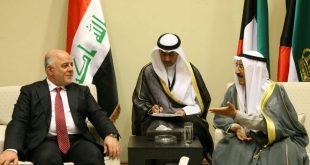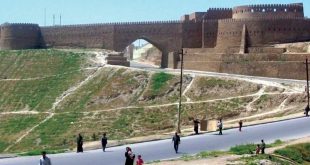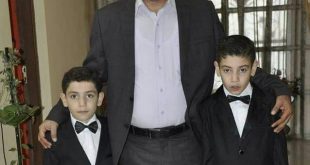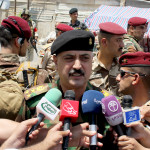
At the beginning of the 70s of the past century, the American intellectual (Andrew Mark) presented in and important article a question about the reason of the defeat of US -as it is a major power- in its war with Vietnam which the media dealt with back then as a (weak structure)…!! Why did an army that has the fundamentals of power and superiority in air, land, and sea get defeated by a gang war that exhausted it and forced its leadership to sit on the negotiation table and make a Peace Treaty?? What question rose a big argument in the medium of the two institution (the military and the politically) which later produced a new strategy based on transporting the war from the crowds and heavy artillery to light forces and fourth-generation wars that relies on technology, information, and intelligence combined with professional political performance …
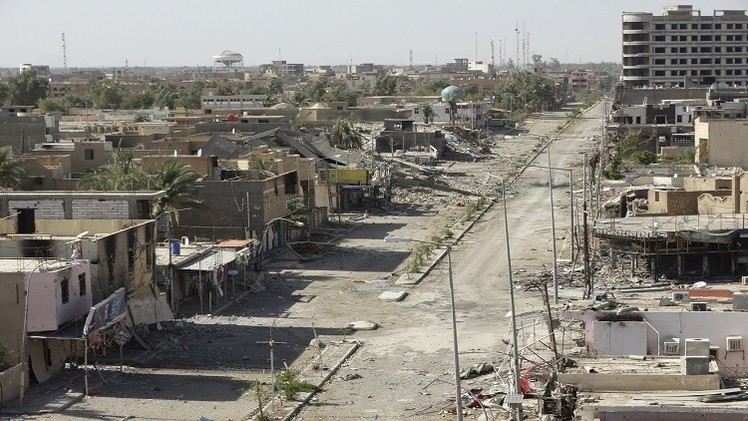
Today we are in front of a dramatic scene drawn by the news of the sudden withdrawal of the fighting sectors from Al-Ramadi, which raises many questions, we mention the most important:
- Why would the forces of the army, police and anti-terrorism, and the clans’ armors withdraw in front of the attack of non-harmonized armed groups (Salafi, Baathist and Foreign and hybrid between them) which are gathered by nothing but the hostility to Iraq?
- Where is the flaw in this retreat? Is it in the strategy or in the tactic?
- What about the psychological and media war and the spirits?
- Why would a force supported with air and heavy armor and fighting on its land against small fighting divisions that follow moving-fire tactic and its weapons are medium that don’t exceed singles and mortars?
- Should we accept excuses like the enemy’s use on explosives and suicide bombers, or reformulate the question and direct it to the leaders and officials and say that this is not a new tactic in the war against terrorism and ISIS has used it in Tikrit, Beiji, and Hamrin, so what is your plan to address the situation?
- Who decided the withdrawal and who issued directives and gave orders to evacuate the city? And what is the withdrawal plan? Is it a studied one and placed within the possibilities, or came spontaneously?
- Were the equipments, heavy weapons, and pegs withdrawn or not? And who is in charge?
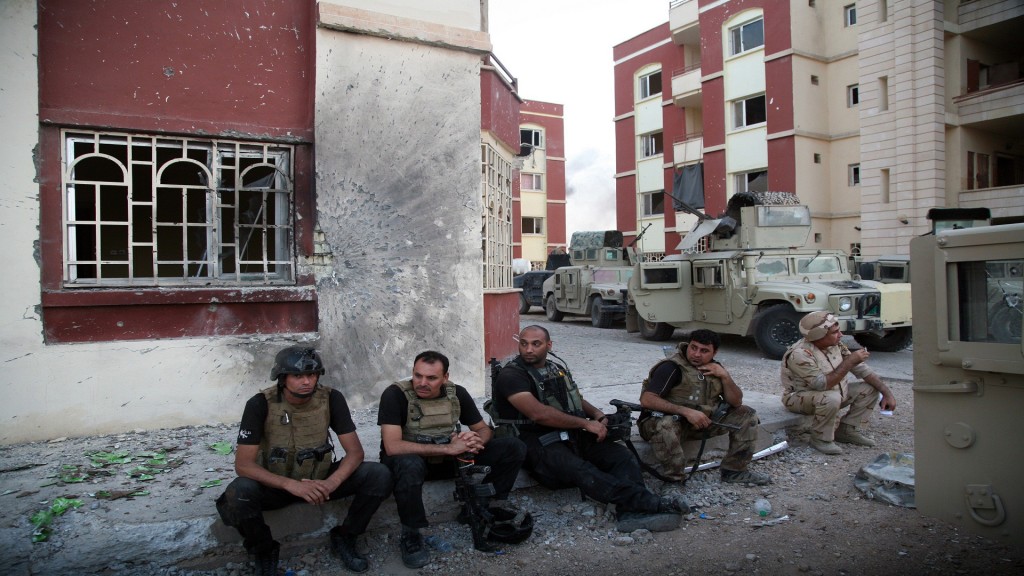
The sectors rest in Al-Ramadi
The questions are a lot and need satisfying answers to explain this military collapse which we didn’t find what justify it, especially that the armed forces were taking cover in fortified areas that are far from direct contact with the enemy except for indirect fires… such as the operation leadership, Al-Adly castle, anti-terrorism headquarter, and police which are located in the east of the city while the enemy entered its western neighborhoods… even ISIS was in shock and didn’t believe what was happening according to what came in the first picture of the city fall…
There are several reasons that formed in our opinion a group of factors that lead to that retreat, of the important are the following:
- Following the stationary defiance (building barriers, digging ditches, and catching land) without making interfering missions that frighten the enemy and enhance the sectors’ spirits.
- This tactic moved the initiative to the armed forces and enabled it to determine the time and place of the attack.
- The enemy moved the clashes into populated areas which restricted the air force.
- Weakness in leadership, control, and coordination between the units which was seen in the withdrawal.
- The Alliance air force was not effective and didn’t present enough support to the sectors defending the city.
- The political tensions and apparent differences on the topic of arming the clans, the PMF participation, and shortage of supply…
- Damage in the spirits of the fighters which is accounted to a group of factors of the important (regular vacations, livelihood quality, honoring sacrifice, salaries, bonus, and human aspects).
- There is no clear plan to immunize the fighters against the anti psychological war.
- Reviewing the performance of the commanders and leaders of the battle, honoring who sacrificed and the brave, and replacing who failed his mission…
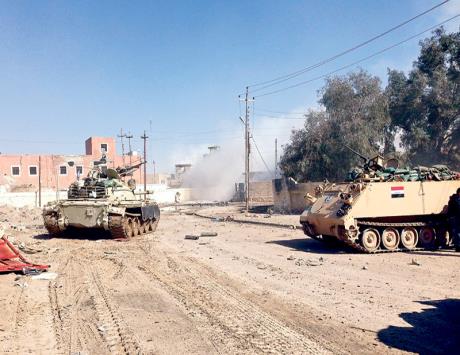
In my opinion, Al-Ramadi is bigger and more difficult to be swallowed by some hundreds of ISIS and they will choke with it and get lost in its alleys and its fiery volcano and their defeat is certain and not far… and the current situation from our point of view needs the following procedures:
- Reorganization, psychological and spiritual rehabilitation, and military training for retreating units.
- Compensate for their losses in equipments and support it with new bloods of fighters.
- Get ready for the next battle with all the available means.
- Move from concealed defense to the active defense and effective encountering.
- Change the current tactic that was proven as a failure in the field.
- Improve the leadership and control system and coordinate in a higher level between sectors.
- Pay attention to the importance of psychological and media war in the battle.
Ask for help from the PMF, involve it in the missions, and benefit from its experience in guerrilla warfare and built-up areas.
And war is a contest, and this page needs to be reviewed, and lessons should be extracted from it and used in the future in the war against ISIS and terrorism.
 Dheyaa Alwakeel
Dheyaa Alwakeel
